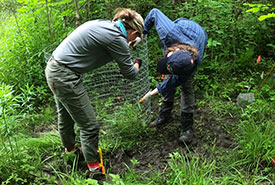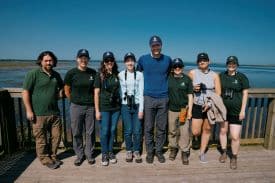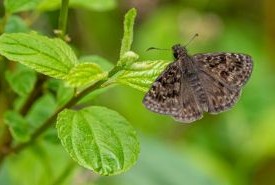Conservation Research
The Nature Conservancy of Canada (NCC) is an evidence-based organization that uses the best available information to identify priority conservation actions. Research is essential to identify, monitor and evaluate the threats and changes in landscape resilience as well the effectiveness of conservation strategies. This includes assessing biodiversity and ecosystem change by documenting species and ecosystem occurrences, closing knowledge gaps, and testing ways to improve management practices.
NCC partners with researchers from academia, government, other non-governmental organizations, and the private sector to conduct research. Hundreds of studies take place on NCC land each year, including many multi-year and multi-partner projects. We welcome non-conservation focused research that is compatible with our land management objectives and responsibilities.
NCC’s national Science and Research Program coordinates all research projects and partnerships, and helps to ensure that science addresses pressing challenges and informs our planning, habitat securement, and stewardship actions. We have particular interests in applied research that addresses the direct and indirect drivers of biodiversity and ecosystem change, and that supports Indigenous-led conservation.
Collaborate with NCC
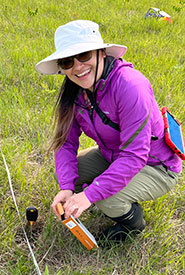
Studying the outcomes and interactions of different management practices is an important aspect of guiding conservation from local to landscape scales. Here, Jessica Sánchez-Jasso takes soil samples as part of a research partnership at the Manitoba Tall Grass Prairie Preserve (Photo by Aerin Jacob/NCC staff).
NCC properties span the country, including some of the most diverse habitats in Canada, and serve as excellent natural laboratories. NCC collects considerable data and can support researchers by providing access to our properties and conservation information, including on species, habitats, monitoring results and management actions.
In some cases, NCC can act as a collaborator on research grants, such as Mitacs or Tri-Council funding streams. We may also be able to offer letters of support for proposed projects that address our applied research priorities.
NCC staff have a wide depth and breadth of expertise and may sometimes collaborate on research projects, especially those tied to ongoing or planned management actions like prescribed burns, invasive alien species control and ecological restoration.
In some areas, researchers may request to borrow equipment such as boats, ATVs, field computers and greenhouse facilities. NCC has facilities on some properties that may be used to house researchers and field crews, often on a cost-recovery basis. Examples include:
- Ivey Research Station, 567 East Shore Road, Pelee Island, Ontario
- Shorebird Field Cabin, 2459 Route 935, Johnson’s Mills, New Brunswick (Johnson’s Mills Shorebird Reserve and Interpretive Centre)
- Old Man on His Back Prairie and Heritage Conservation Area, Saskatchewan
- The Weston Family Tall Grass Prairie Interpretive Centre, 32087 Road 10N, Stuartburn, Manitoba
- Pitman Research Cabin on NCC's Gravelly Bay property, Long Point, Ontario
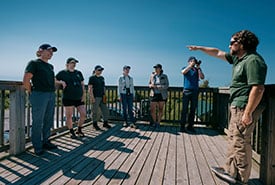
NCC staff and research partners visit restoration sites in Norfolk County, Ontario (photo by Joel Rodriguez)
Field houses in Quebec, British Columbia and in other locations in Ontario may be available in varying conditions.
In addition, the Weston Family Conservation Science Fellowship Program encourages further collaboration with academic institutions and graduate students.
Given the nature of collaboration with our partners on research projects, any monetary contribution from NCC is restricted to direct costs only and cannot be used to fund overhead.
For further information
Please contact Aerin Jacob, director of science and research, for more information on applied conservation research with NCC.
